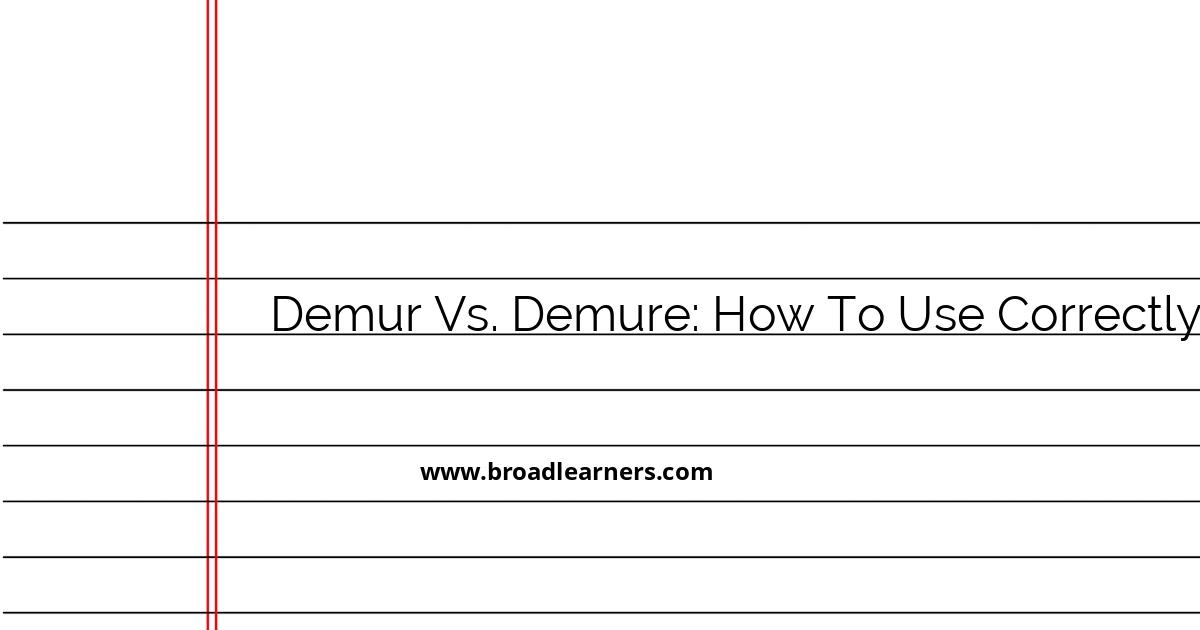The English language is replete with words that sound similar yet have distinct meanings. Two such words are "demur" and "demure". Despite their phonetic similarities, these words are used differently in sentences to convey unique meanings. In this article, we will explore the differences between these two words, providing clear definitions, usage guidelines, and examples to help you understand how to use each word correctly.
- Definition of Demur:
- The word demur is typically used as a verb and can also function as a noun. As a verb, it means to raise objections or show reluctance. As a noun, it refers to the act of hesitating or raising an objection.
- Definition of Demure:
- The word demure is an adjective used to describe someone, especially a woman, as reserved, modest, shy, or reticent in behavior or appearance.
Let's explore the correct usage of each word with examples:
1. Demur as a Verb
When used as a verb, "demur" signifies the act of raising doubts, objections, or expressing hesitation. It is commonly used in formal contexts.
Example:
During the meeting, Alex demurred when asked to endorse the proposal, citing a need for further analysis.
Explanation: In this sentence, Alex hesitated or objected to endorsing the proposal, expressing a sense of reluctance.
2. Demur as a Noun
When used as a noun, "demur" refers to the act of objecting or raising a modest protest.
Example:
The manager listened to the employee's demur regarding the new company policy.
Explanation: Here, the word "demur" highlights the employee's act of objecting or expressing hesitation about the new policy.
3. Demure as an Adjective
The adjective "demure" describes a person, often a woman, as being shy, reserved, or modest in demeanor or appearance. This term is often used in more personal or social contexts.
Example:
Sara attended the formal dinner in a demure outfit, maintaining a quiet and humble demeanor throughout the evening.
Explanation: In this context, "demure" is used to portray Sara as someone with a modest and reserved character, which is further reflected in her choice of outfit and behavior.
Now, let’s look at a structured comparison:
| Word | Part of Speech | Definition | Usage Example |
|---|---|---|---|
| Demur (Verb) | Verb | To raise objections or show reluctance | Jessica demurred at the suggestion, preferring to consider other options first. |
| Demur (Noun) | Noun | Act of objecting or hesitation | Despite repeated urging, her demur was clear to everyone in the room. |
| Demure (Adjective) | Adjective | Modest, shy, reserved in manner or appearance | The young intern presented her ideas with demure confidence, captivating the attention of the board members. |
In conclusion, although "demur" and "demure" may sound similar, understanding their distinct meanings and contexts will enable you to use them accurately in both written and spoken English. Demur involves objection or hesitation, while demure characterizes a reserved and modest demeanor. By mastering their usage, you will be better equipped to articulate your thoughts clearly and effectively.

Did I miss anything? Respond below